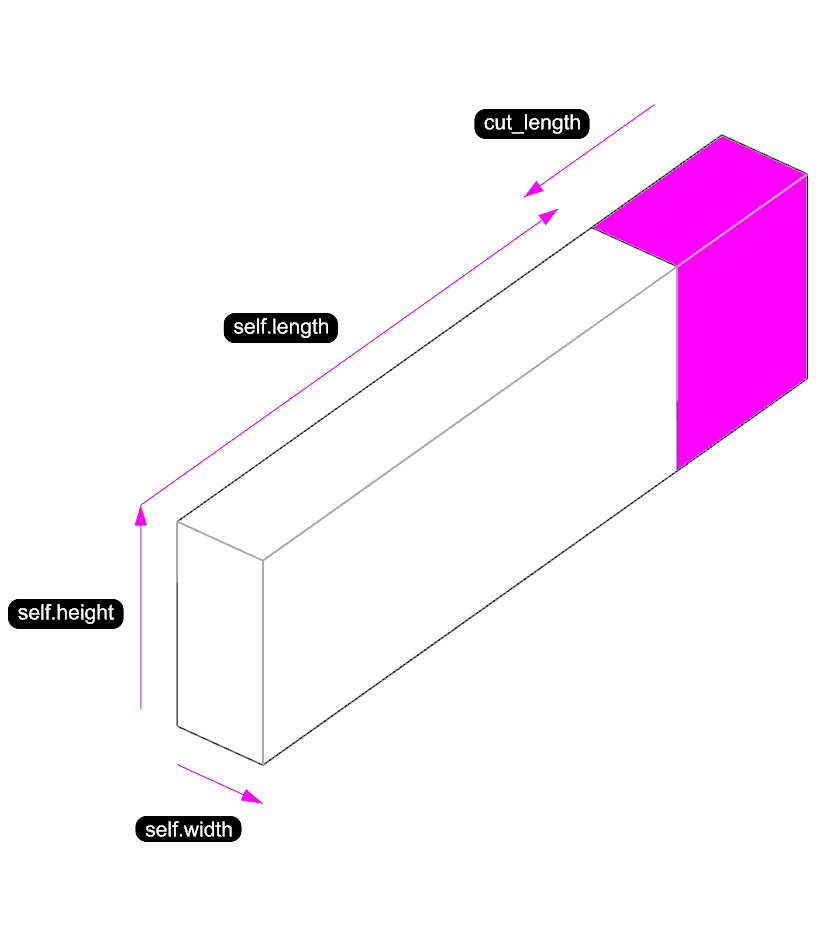Methods
As seen in the definition, a method is a function that is defined inside a class. It is used to define the behaviors of an object. Methods are accessed using the same dot syntax as attributes. The only difference is that we need to add parentheses to the end of the method name. We can also pass arguments to methods just like we do with functions.
In summary, methods are a fundamental part of object-oriented programming and they provide a way to define behaviors or actions that an object can perform with its data.

How to define methods
Here’s an example of a particular method that cuts a beam at a given length:
class Beam:
def __init__(self, length, height, width):
self.length = length
self.height = height
self.width = width
def calculate_volume(self): # this is a method
"""Calculate the volume of the beam"""
volume = self.length * self.width * self.height
return volume
def cut(self, cut_length):
"""
Cut the beam at a given length.
The method checks if the beam is long enough to be cut.
:param cut_length: length at which the beam should be cut
"""
# get the current length of the beam and substract the cut length
current_length = self.length
current_length = current_length - cut_length
# check if the beam is too short to be cut
if current_length < 0:
print("The beam is too short to be cut")
return False
else:
self.length = current_length
print("The beam has been cut")
return True
How to use methods
Here’s how we can use the defined method cut() after we created an instance of the Beam class:
# Create an instance of the Beam class
my_beam = Beam(10, 0.2, 0.2)
# test some cuts
my_beam.cut(1)
my_beam.cut(1)
my_beam.cut(10) # <-- this one will fail!
🛠 Exercise
01: 🐍⬇️⬇️⬇️ Download the script here ⬇️⬇️⬇️🐍 02: 🐍⬇️⬇️⬇️ Download the script here ⬇️⬇️⬇️🐍 03: 🐍⬇️⬇️⬇️ Download the script here ⬇️⬇️⬇️🐍
Solution:
01: 🐍⬇️⬇️⬇️ Download the script here ⬇️⬇️⬇️🐍 02: 🐍⬇️⬇️⬇️ Download the script here ⬇️⬇️⬇️🐍 03: 🐍⬇️⬇️⬇️ Download the script here ⬇️⬇️⬇️🐍